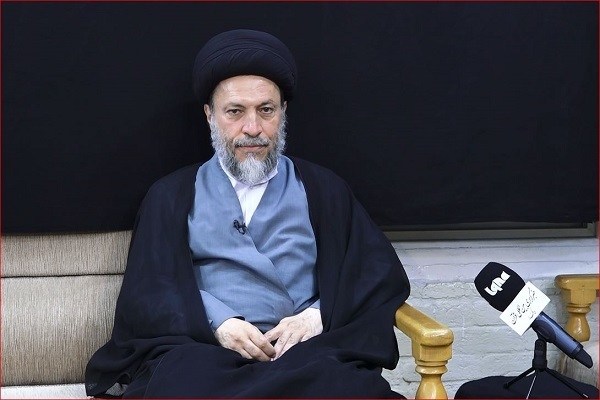Religious Institutions’ Independence Can Pave Way for Unity in Muslim World, Iraqi Cleric Says


The independence of these institutions from governments will therefore pave the way for realization of unity among them and in the Muslim world, Ayatollah Sayed Riyadh al-Hakim told IQNA in an interview conducted on the occasion of the Islamic Unity Week.
The 17th day of Rabi al-Awwal, which falls on October 13 this year, is believed by Shia Muslims to mark the birth anniversary of Prophet Mohammad (PBUH), while Sunni Muslims regard the 12th day of the month (Sunday, October 9) as the birthday of the last prophet.
The interval between the two dates is celebrated every year as the Islamic Unity Week.
Late Founder of the Islamic Republic of Iran Imam Khomeini (RA) declared the occasion as the Islamic Unity Week back in the 1980s.
Excerpts from Ayatollah al-Hakim’s remarks in the interview are as follows:
Unity has two dimensions: ideological and practical. In the first one, there are different Ijtihads and therefore unity in the Muslim Ummah does not mean unity in beliefs but thinking together and talking with one another. As for the practical dimension, it can be said that all of us Muslims belong to a united Ummah and have many commonalities and naturally, this unity is manifested in common stances.
When measures are taken against Muslims, it is expected that the Islamic Ummah, based on this unity, should have a united stance. Also, Muslims must avoid tensions and trampling on rights in their relations.
There are some factors that prevent the realization of true unity among Muslims. The first one is political. There are stark differences among rulers of Muslim countries. Since the majority of religious institutions are affiliated to political systems, disagreements and differences among governments are reflected in the relations among religious institutions of different countries.
So it is logical for religious and ideological institutions to be completely independent from political systems.
Another factor that impedes unity is prejudice and extremism. In some Islamic schools of thought, especially in their foundations, there is ground for avoiding peaceful coexistence, which prevents good cooperation and proximity among Muslims.



